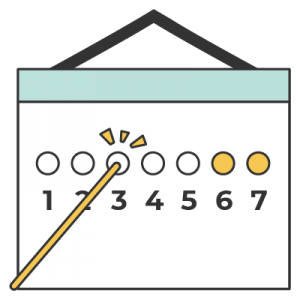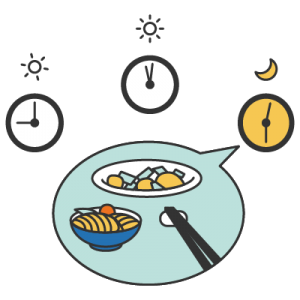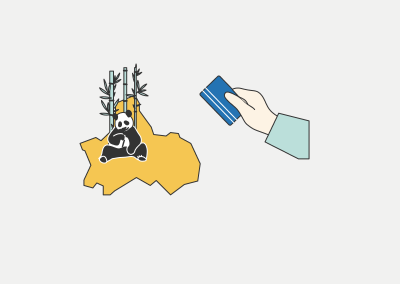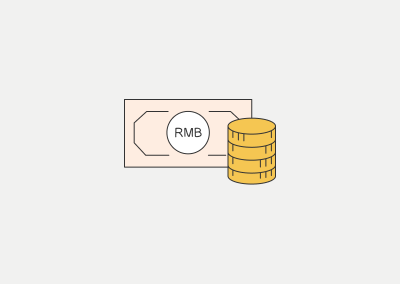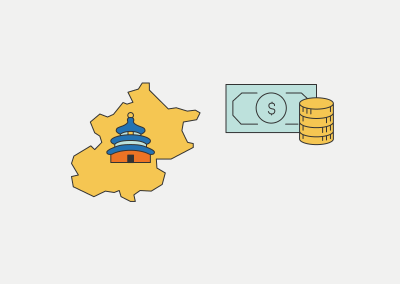How to Use the Future Tense in Chinese: A Complete Guide
Understanding how to express future tense in Chinese is essential for anyone learning the language. While Chinese grammar rules are often viewed as simpler compared to European languages, mastering Chinese tenses still requires attention.
For example, Chinese does not use verb conjugations and plural forms are used sparingly. However, Chinese learners must still understand how tense in Mandarin Chinese functions in real conversations.
In this article we’ll explore how to form the future tense in Mandarin, which is key for planning, making predictions and talking about upcoming events in spoken and written Chinese.
A Verb Used On Its Own
In Mandarin Chinese a verb used without a time marker can indicate present tense, or future tense depending entirely on the context. This is one of the unique features of Chinese sentence structure that makes it distinct from English grammar.
Examples:
我每天喝咖啡 (wǒ měi tiān hē kā fēi)。= I drink coffee every day.
我明天去北京 (wǒ míng tiān qù běi jīng)。= I’m going to Beijing tomorrow.
Vocabulary:
每天 (měi tiān): every day
喝 (hē): to drink
明天 (míng tiān): tomorrow
去 (qù): to go
Even though the Chinese verb form stays the same, the addition of words like “明天” (tomorrow) signals the future tense in Chinese naturally. Understanding this structure is essential for students learning Mandarin who want to build fluency in everyday Chinese communication.
会 (huì) + verb
In Chinese grammar the auxiliary verb “会 (huì)” is commonly taught as meaning “can”, “to be able to” particularly when referring to learned skills. However, when it’s used with a verb and the context is time-related it can express future tense in Chinese — indicating what someone will do in the future.
This is especially useful for Mandarin learners who want to master expressing future actions in Chinese in a simple and natural way.
Examples:
我星期三会去上班 (wǒ xīng qī sān huì qù shàng bān)。= I will go to work on Wednesday.
Here 会 (huì) clearly signals that the speaker will do something in the future, and it’s not related to ability or skill.
Vocabulary:
星期三 (xīng qī sān): Wednesday
上班 (shàng bān): to work, to start working
要 (yào) + verb + 了 (le)
One of the most effective and natural ways to express an immediate future action in Chinese is by using the structure “要 + verb + 了”. While the particle “了 (le)” is often associated with the past tense in Mandarin in this structure it actually marks a shift or change that is about to happen a near-future event.
This grammar pattern is incredibly useful when you want to say something is just about to happen in Chinese and it’s widely used in spoken Mandarin.
Examples:
我要吃晚饭了 (wǒ yào chī wǎn fàn le)。= I’ll have dinner pretty soon.
Vocabulary:
吃晚饭 (chī wǎn fàn): to eat dinner
By learning this common Chinese sentence pattern language learners can confidently express upcoming actions a key component of mastering Mandarin future tense.
快要 (kuài yào) + verb + 了 (le)
The sentence structure “快要 + verb + 了” is used in Mandarin Chinese to express that something is about to happen very soon. It’s a powerful way to talk about the near future in Chinese with a strong sense of urgency immediacy.
The word “快 (kuài)” literally means “fast” “soon” and when combined with “要…了” it forms a clear structure to signal that an action event is right around the corner. This is one of the most commonly used Chinese future tense patterns in everyday spoken language.
Examples:
我快要回北京了 (wǒ kuài yào huí běi jīng le)。= I’m going back to Beijing pretty soon.
Vocabulary:
回 (huí) = to go back, to return

不 (bù) + verb: Negative Statements in Present and Future Tense
In Mandarin Chinese grammar the structure “不 (bù) + verb” is used to form negative sentences. Depending on the context it can refer to either the present tense the future tense.
This pattern is essential for learners who want to express not doing something now in the near future.
Example:
我今天晚上不学中文 (wǒ jīn tiān wǎn shàng bù xué zhōng wén)。= I’m not going to study Chinese tonight.
不 (bù) + verb + 了 (le): Expressing “Will Not Do Something” in Chinese
The structure 不 (bù) + verb + 了 (le) is used in Mandarin Chinese to indicate a decisive refusal that an action will no longer happen in the future. Despite including 了 (le) this construction is not about past tense, but rather emphasizes that something will not be done.
Example:
我不看这个电影了 (wǒ bù kàn zhè gè diàn yǏng le)。= I will not watch this movie.
Vocabulary:
看 (kàn): to look at, to watch
电影 (diàn yǏng): movie
不会 (bù huì) + verb: Expressing “Will Not Do Something” in Chinese
In Mandarin 会 (huì) + verb often indicates a future action ability meaning “will do something”. Conversely adding negation as 不会 (bù huì) + verb means “will not do something” or “won’t happen”.
This structure expresses a firm future negative statement similar in meaning and emotion to 不 + verb + 了.
Example:
他明天不会来 (tā míng tiān bù huì lái)。= He won’t come tomorrow.
Vocabulary:
来 (lái): to come
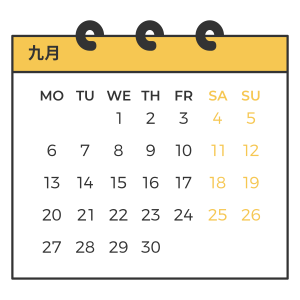
We hope you enjoyed reading! For more information on Chinese structure click the link!
FAQ: Using 不会 (bù huì) + Verb to Express Future Negation in Chinese
01. What does 不会 + verb mean in Chinese?
不会 + verb means “will not do something”, “won’t happen” and is used to express future negation inability in Mandarin Chinese.
02. How is 不会 different from 不 + verb + 了?
Both express future negation, but 不会 focuses on a general or certain future event, while 不 + verb + 了 sounds more immediate and decisive.
03.Can 不会 be used for abilities?
Yes, 不会 can also mean “cannot” or “not able to” when referring to skills knowledge depending on context.
04. How do you pronounce 不会 + verb correctly?
不会 is pronounced bù huì, where 不 is a falling tone and 会 is a falling-rising tone. It’s followed by the verb’s pronunciation.
05. Is 不会 commonly used in daily conversation?
Yes, 不会 is frequently used in spoken and written Chinese to indicate something will not happen or someone will not do something.
06. Can you give an example sentence with 不会 + verb?
他明天不会来 (tā míng tiān bù huì lái) – He won’t come tomorrow.



